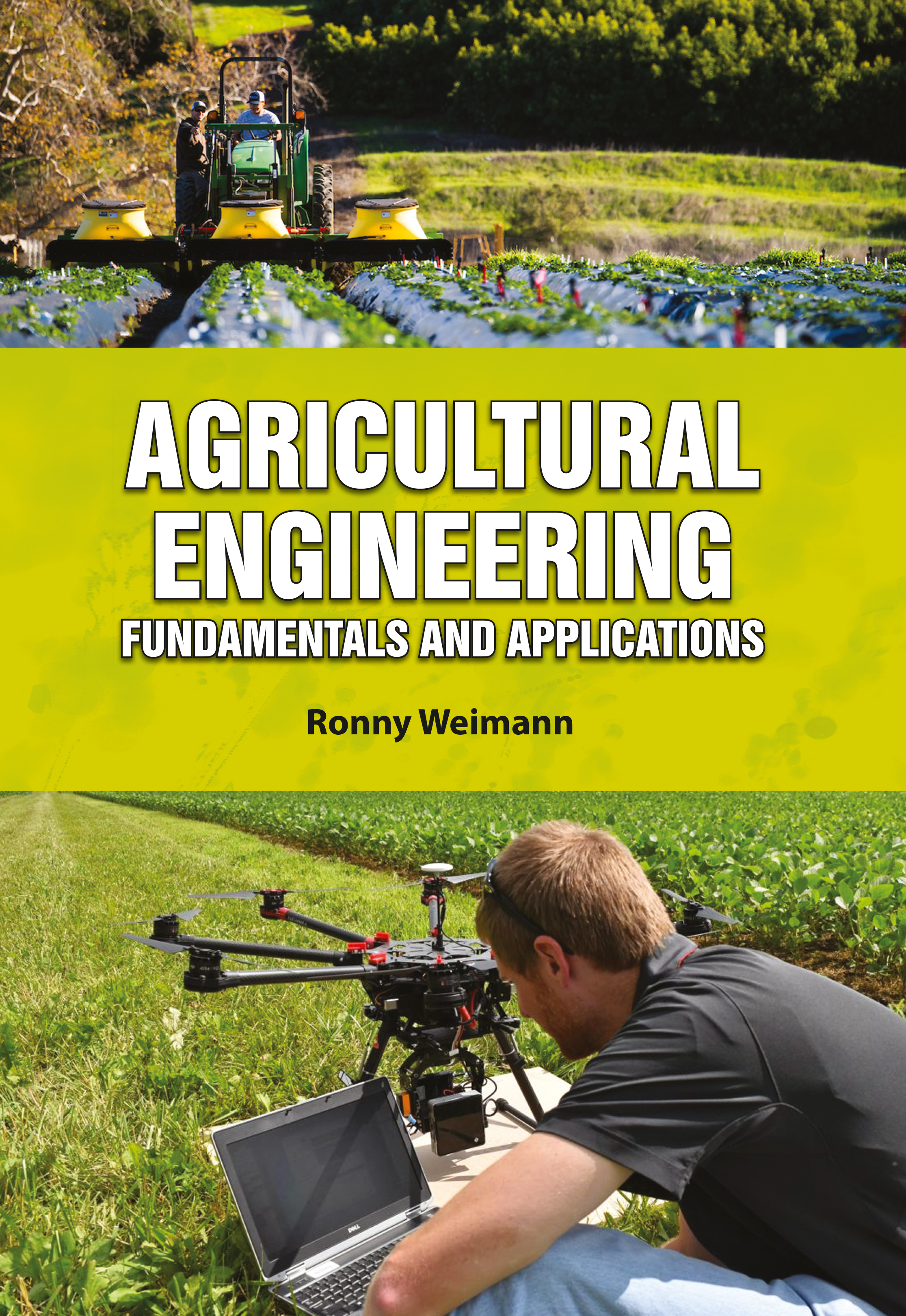
Agricultural Engineering: Fundamentals and Applications
by Ronny Weimann
| ISBN | 9781835357675 |
|---|---|
| Publisher | EDTECH PRESS |
| Copyright Year | 2025 |
| Price | £155.00 |

by Ronny Weimann
| ISBN | 9781835357675 |
|---|---|
| Publisher | EDTECH PRESS |
| Copyright Year | 2025 |
| Price | £155.00 |
Agricultural engineering, also known as agricultural and biosystems engineering, is the field of study and application of engineering science and designs principles for agriculture purposes, combining the various disciplines of mechanical, civil, electrical, food science, environmental, software, and chemical engineering to improve the efficiency of farms and agribusiness enterprises as well as to ensure sustainability of natural and renewable resources. Agricultural engineers integrate technology with farming. For example, they design new and improved farming equipment that may work more efficiently, or perform new tasks. They design and build agricultural infrastructure such as dams, water reservoirs, warehouses, and other structures. They may also help engineer solutions for pollution control at large farms. Some agricultural engineers are developing new forms of biofuels from non-food resources like algae and agricultural waste. Such fuels could economically and sustainably replace gasoline without jeopardizing the food supply. Agricultural engineers work both indoors and outdoors. They spend time in offices creating plans and managing projects, and in agricultural settings inspecting sites, monitoring equipment, and overseeing reclamation and water management projects. These positions may involve a significant amount of travel. These engineers may also work in laboratories and classrooms. They may collaborate with others to plan and solve problems. For example, they may work with horticulturalists, agronomists, animal scientists, and geneticists. This book has been designed as an introductory text which undertakes a through exploration the concepts and practices which define agricultural engineering.